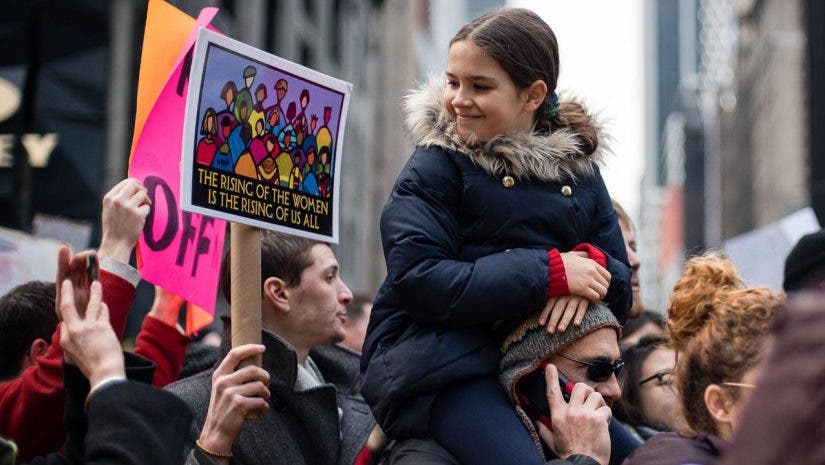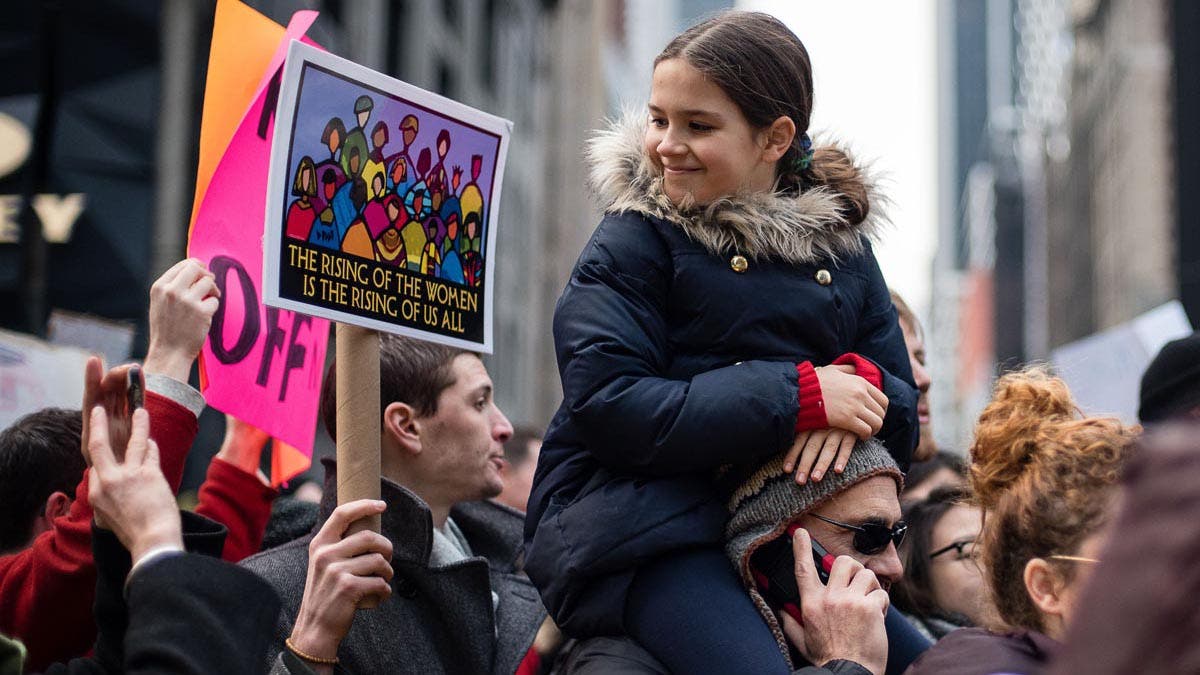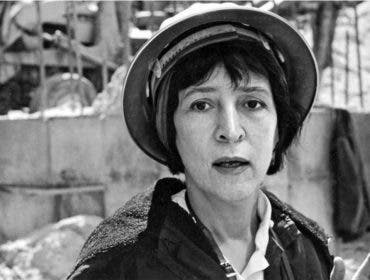Photographer Jen Mullowney decided to attend the New York City Women’s March on January 21, 2017. She could not have imagined how much it would shape her life and career. Jen is a single mother and a female photographer who continues to carve out her place in the photo industry. That day becomes more meaningful as she reflects on it during Women’s History Month. International Women’s Day is fast approaching as I sat down to talk with Jen.
Capturing the Energy of the Women’s March
“Demonstrations were taking place worldwide that day in support of gender equality, civil rights, and other issues expected to face challenges under newly inaugurated President Donald Trump,” Mullowney explains. “When I woke up that morning, I felt an undeniable pull to be there, even though I had a newborn shoot scheduled. I grabbed my Nikon D750, one lens (a 50mm), and my son’s kindergarten backpack—important because it was just big enough for the essentials—water, some nuts, and my business cards—and I was on my way.”
That split-second decision paid off in ways she never could have predicted. “I didn’t go to the March as a professional street photographer. I went as someone who just wanted to capture stories. At first, I focused on the women, but then I realized—everyone there had something to say. And they all wanted to be heard. That’s when it hit me: my real gift as a photographer is the ability to reflect human moments. To capture something fleeting for someone else and freeze it forever.”
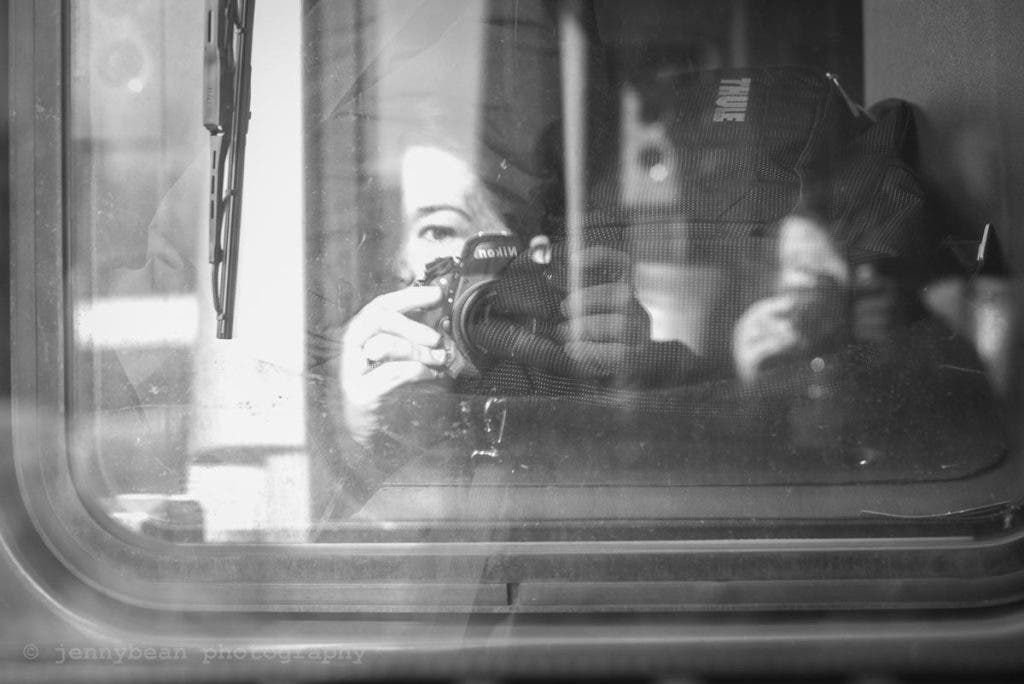
A Career Milestone: Winning the Printique Portfolio Contest
The idea of preserving a moment in time became even more tangible when the Bedford, New York-based documentary, street, wedding, and portrait photographer entered a Printique portfolio contest this past January and won. Printique, Adorama’s sister brand, is not just a pro photo lab that delivers quality books, albums, and prints on a variety of materials—it also actively supports photographers in developing their voice, their brand, and their storytelling via artist spotlights, portfolio features, gallery shows, and local community giveaways. They’ve been especially dedicated to uplifting women in photography. Case in point, the brand’s “WeCreate: The Power of Female Photography” exhibition this past May, which celebrated the talent and dedication of several female photographers, including Lindsay Adler, Anya Anti, Limor Garfinkle, Lara Jade, Susan Magnano, Misshattan, and Monaris.
Mullowney, who is part of Yellow Studio, an all-female art collective in Cross River, New York, draws inspiration from the women featured in the WeCreate exhibit and from others like them. She is greatly appreciative of the support system Printique provides for photographers like her who are looking to gain a stronger voice for their work and personal passion projects.
“This exposure is so pivotal for me in getting to the next level in my career,” she explains. “It’s a chance for me to not just share my work but also see my work and vision come to life through the printed image.”
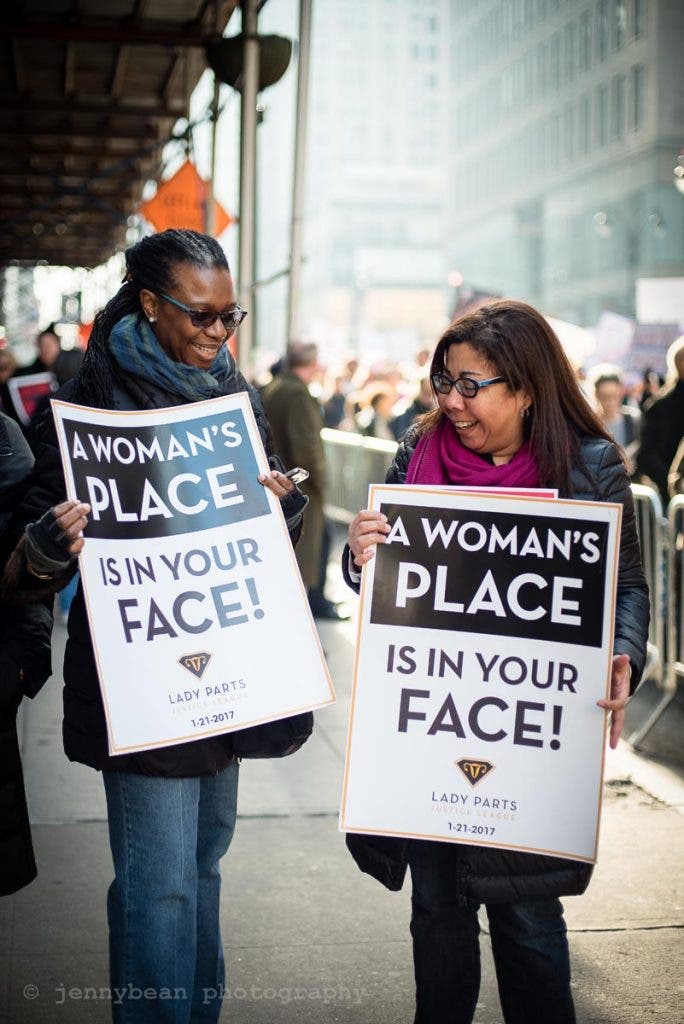
The Power of Print
As this article was being written, Mullowney, whose prizes from the Portfolio win includes a Silk Fabric Cover Photo Album as well as a 6-month Pro Membership to Printique, was on her way to the lab’s headquarters in Brooklyn, New York, to be filmed printing a selection of images from her winning submission, with the big reveal of the final album captured on film as well.
Mullowney admits that in the past, she wasn’t integrating print into her client offerings but always felt like there was something missing in her process. Today, she values the importance of a photo album or print being included with every shoot. “There is absolutely nothing more satisfying than holding those cherished memories in your hands,” she says. “It’s a way to instantly connect with a moment in time. That’s why printing my photos has become a huge part of my workflow, especially now that I am also exhibiting my work in group shows at local galleries where I live. Seeing my final product hanging on a wall in a gallery or in someone’s home is so validating.”
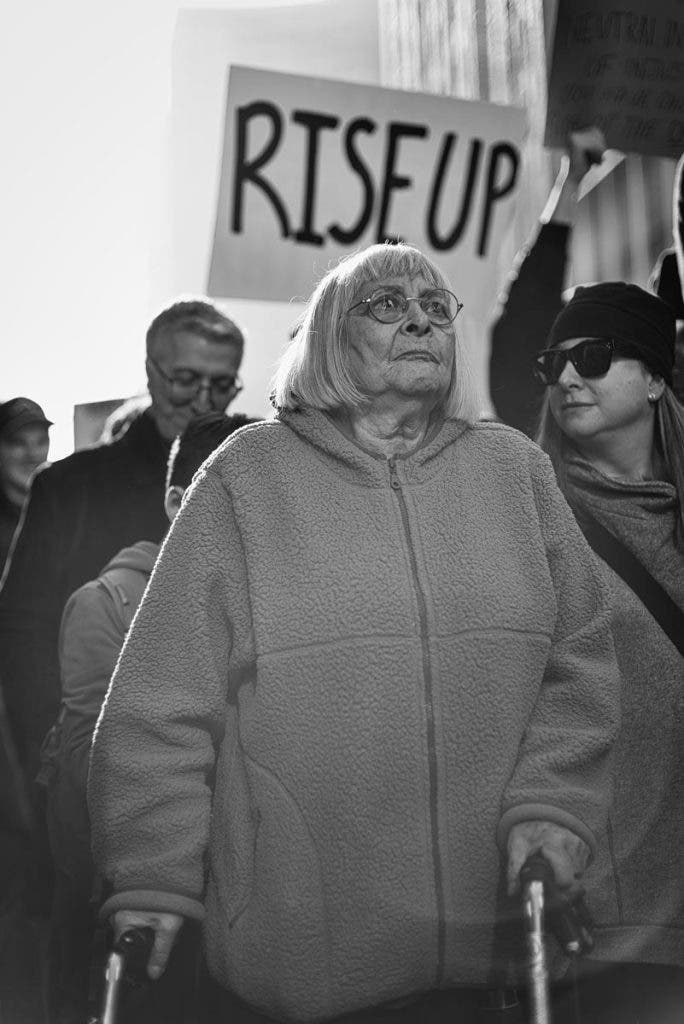
The Evolution of a Photographer’s Vision
With her Printique win still feeling a bit surreal, especially for the older body of work being recognized, Mullowney reflects again on how it all came about. “I had just started my photography journey when I set out to shoot the Women’s March,” she explains. “I was assisting wedding photographer Jean-Pierre Uys, and one day, he handed me a camera. He said he loved my storytelling and told me he’d love to see what I could do on the street. I accepted the challenge, knowing that this event would be a moment people would want to remember. I wasn’t wrong. The energy was electric—people just wanted to be seen and heard. For me, it wasn’t just about learning street photography on the fly; it was about figuring out what I wanted to say with it.”
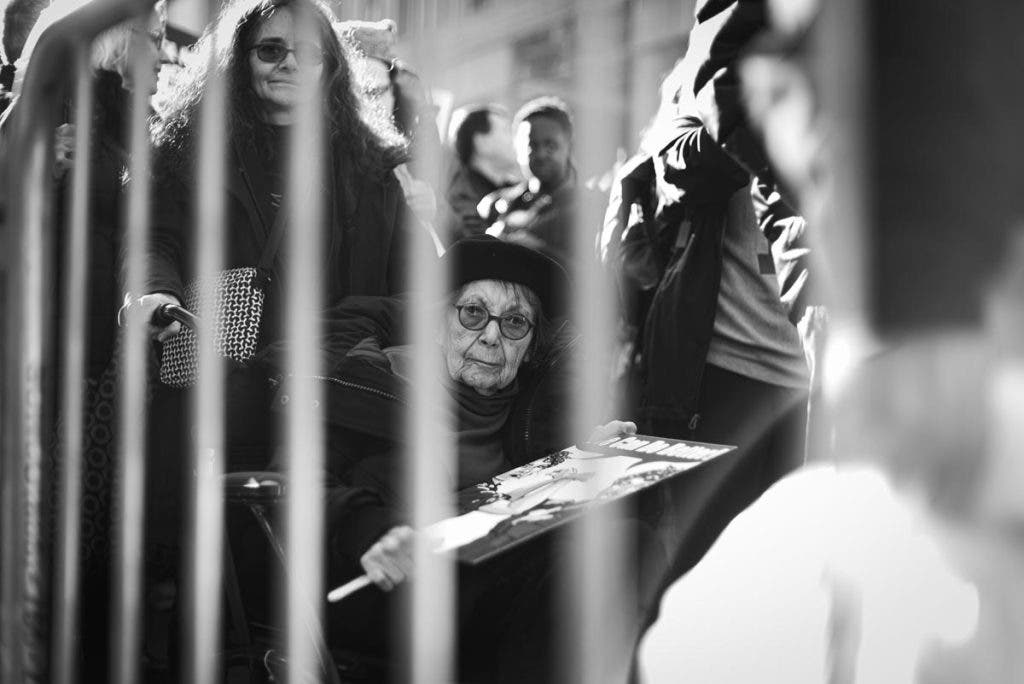
The Women’s March; Finding Meaning in Every Frame
Editing your own photographs can be an overwhelming task, but for Mullowney, every image she selected to submit to Printique had special meaning. Her intent was to include a wide range of voices and faces—little girls as well as little boys, grandmothers, mothers and fathers, friends and strangers, all connecting in real-time.
“One of my favorite shots from that day, which I included in my Printique submission, is of a little girl perched on her dad’s shoulders, right next to a sign that read, ‘The Rising of the Women is the Rising of Us All.’”
Then there’s the image of an older woman with a walker, standing beside a sign that simply says, Rise Up.
And there was no way she could not include the larger-than-life presence of a proudly costumed Wonder Woman attendee who captures the resiliency and strength of the entire day in one frame.
“These photos are real, connected moments—they document not just a protest but a period of history,” says Mullowney. “That’s what documentary photography is all about to me. Not just capturing something but making sure people feel it.”
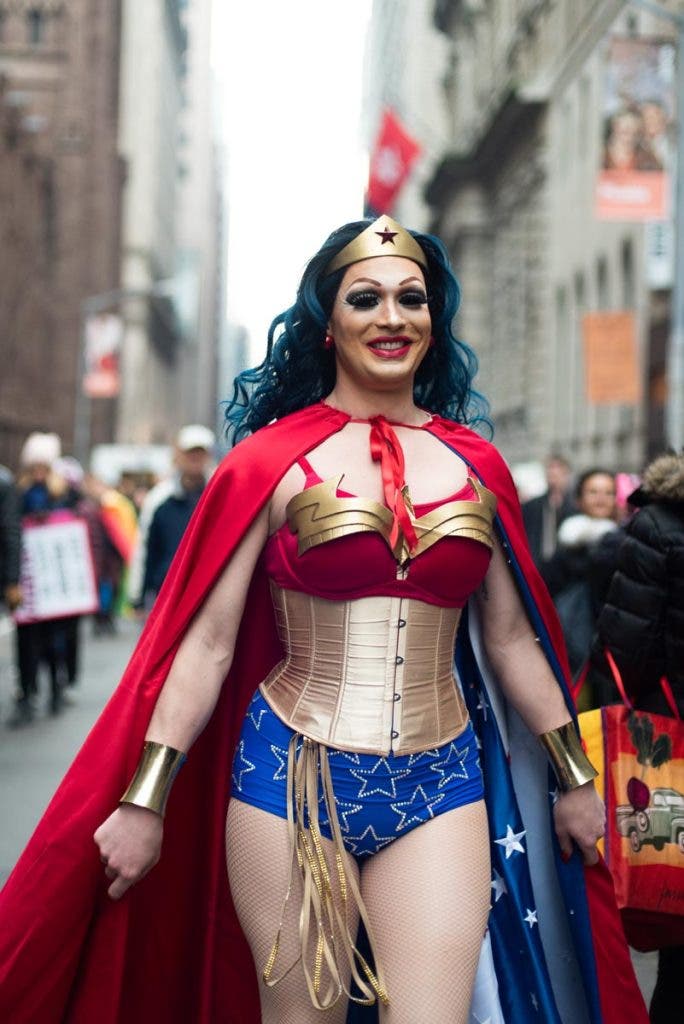
Final Takeaways
One unexpected but cherished lesson from that day of the March, says Mullowney, is about the power of limitations. “I only brought my 50mm lens, mainly for simplicity, but it ended up being a gift. That lens forced me to be right in it—to be with the people, not just observing from the sidelines. A 50mm lens sees like the human eye. I wasn’t zooming in from a distance; I was immersed in the energy, the power, the feeling of it all.”
At times, she had to step away—walk a couple of blocks, take a breath, then dive back in. “It was overwhelming, but in the best way. My hope is that when people look at my photos, they see them through that same emotional lens. That they feel that sense of connection.”
One photo that still resonates with her to this day is one she says wasn’t even her best technically: “It’s of two women holding the same sign that says, ‘A woman’s place is in your face.’ I took it quickly as they were looking at each other and laughing. That moment makes me realize—we all just want to be seen and heard.”
At the end of the day, Mullowney’s experience with the Women’s March has enabled her to offer some sage advice for other photographers and creatives like her: “Go blindly in the direction of what brings you joy and trust your intuition.”
All photos copyright Jen Mullowney
View more of Jen Mullowney’s portfolio here.
